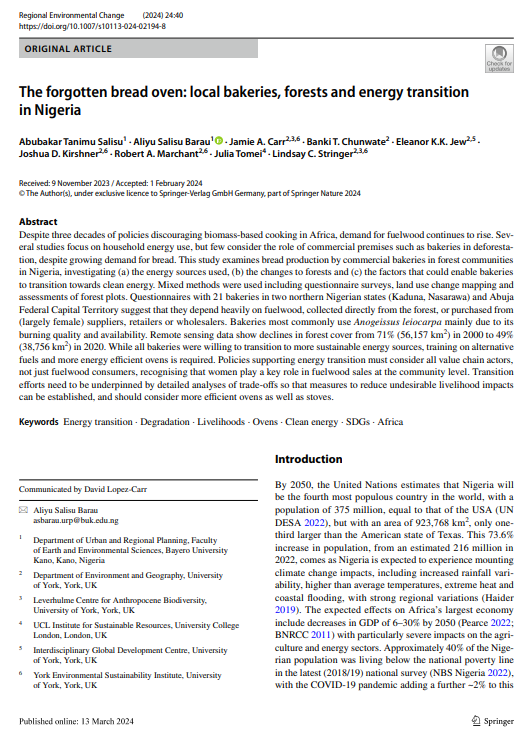Publication date: 13 March 2024
Author: Springer
Description: Despite three decades of policies discouraging biomass-based cooking in Africa, demand for fuelwood continues to rise. Several studies focus on household energy use, but few consider the role of commercial premises such as bakeries in deforestation, despite growing demand for bread. This study examines bread production by commercial bakeries in forest communities in Nigeria, investigating (a) the energy sources used, (b) the changes to forests and (c) the factors that could enable bakeries to transition towards clean energy. Mixed methods were used including questionnaire surveys, land use change mapping and assessments of forest plots. Questionnaires with 21 bakeries in two northern Nigerian states (Kaduna, Nasarawa) and Abuja Federal Capital Territory suggest that they depend heavily on fuelwood, collected directly from the forest, or purchased from (largely female) suppliers, retailers or wholesalers. Bakeries most commonly use Anogeissus leiocarpa mainly due to its burning quality and availability. Remote sensing data show declines in forest cover from 71% (56,157 km²) in 2000 to 49% (38,756 km²) in 2020. While all bakeries were willing to transition to more sustainable energy sources, training on alternative fuels and more energy efficient ovens is required. Policies supporting energy transition must consider all value chain actors, not just fuelwood consumers, recognising that women play a key role in fuelwood sales at the community level. Transition efforts need to be underpinned by detailed analyses of trade-offs so that measures to reduce undesirable livelihood impacts can be established, and should consider more efficient ovens as well as stoves.






















